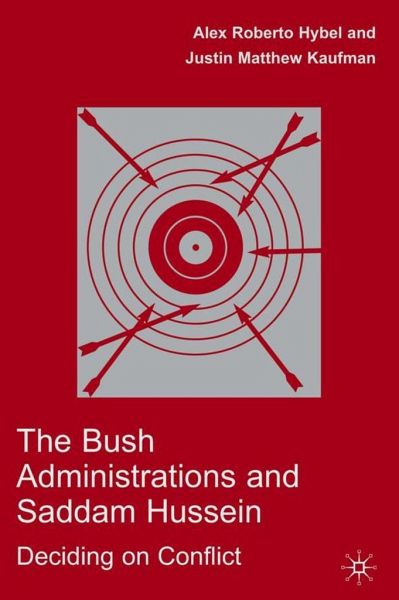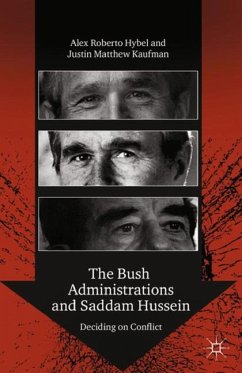"This is an important read about a misadventure that left at least two nations in tatters, Iraq and the United States. It also exposes the failure of so many institutions, including the media. The terrific writing makes this an easy read. The story, however, is one about hard failure." - Bob Franken, Columnist for King Features Syndicate and TV Commenter"
"Alex Roberto Hybel and Justin Matthew Kaufman combine analytical vigor and readable prose in this fascinating comparison of White House decision-making in the two Bush presidencies that resulted in two wars against Iraq, with very different results for America. Their dissection of the styles of Bush I and II, as well as the variations in the role of the intelligence community and
the impact of prior war precedents in each episode, add immeasurably to the historical debate that will continue for years on what went wrong and why."
- Judge Patricia Wald (Retired), Member of the Commission on the Intelligence Capabilities of the United States Regarding Weapons of Mass Destruction
"No activity of a state demands more of its citizens or evokes more fervent emotions than war. Yet few are subject to less hard analysis by those who make the critical decisions. This distressing axiom is splendidly illustrated by Hybel and Kaufman. With precision and intellectual objectivity, they demonstrate on both a theoretical and practical level how emotion and wishful thinking supplanted rationality in the two Iraq wars."
- Ronald Steel, author of Temptations of a Superpower and Pax Americana
"The Bush Administrations and Saddam Hussein is an insightful and skillfully researched examination of the key U.S. decisions on Iraq. The book cuts through the rhetoric and conventional wisdom about the steps leading to war and presents a powerful and persuasive, even if unflattering, picture of how decision-making really worked. It is a valuable resource for understanding not only how the momentous decisions on Iraq were taken, but also how U.S. foreign policy in general is made."
- Paul R. Pillar, Professor of Security Studies, Georgetown University, former National Intelligence Officer for the Near East
















